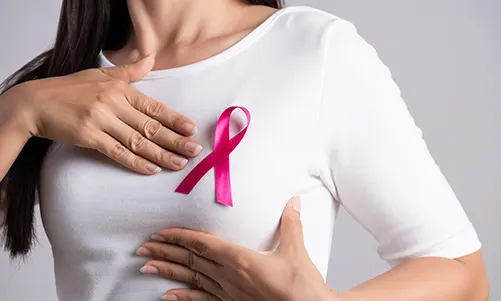Inflammatory breast cancer (IBC) is referred to as a rare and aggressive form of breast cancer that can cause dimpling, pitting or thickening of breast skin, pain, itchiness, enlargement of one breast, and inverted or retracted nipple. IBC is a fast-growing cancer and requires immediate medical attention.
Consult with the best oncologists for inflammatory breast cancer treatment at the CK Birla Hospital.

Inflammatory breast cancer develops when cancer cells block lymph vessels. This blocking of lymph vessels can lead to inflammation and symptoms similar to an infection, making it easy to mistake IBC for an infection. Individuals who are obese or overweight are more likely to get affected with IBC.
₹1,00,000 to ₹3,50,000
Note: These figures are approximate and can vary based on individual circumstances, hospital facilities, and additional services required.
It is not possible to prevent inflammatory breast cancer (IBC), however, adopting a healthy life can help reduce the risk of breast cancer and improve overall health.
Diagnosis of inflammatory breast cancer can be done by a thorough physical examination by an oncologist. The specialist may check and rule out other conditions that may show similar symptoms, and if the doctor suspects IBC, they may recommend a biopsy to confirm.
Recovery from IBC depends on the stage of cancer, the type of treatment, and how well the patient is responding to the treatment. IBC is a rare but aggressive form of cancer that tends to spread quickly, some of the cases get cured if they get diagnosed at very early stages.
According to several research and reports, IBC has a survival rate of 5 years ranging from 30% to 70%. Also, the survival rate of IBC is lower than other types of breast cancer.
Inflammatory breast cancer is always staged at stage III or stage IV.
Inflammatory breast cancer is a very aggressive form of cancer and only some cases are curable.